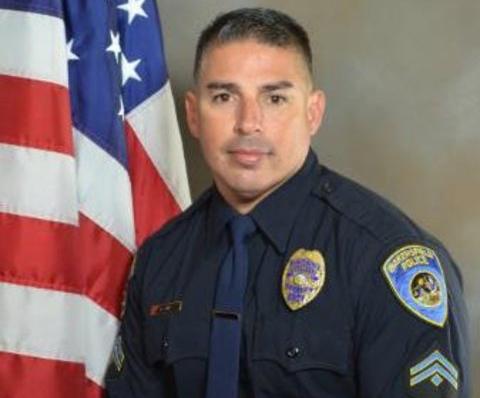Criminal justice professor speaks about the Diaz case

Damacio Diaz
October 5, 2016
The Bakersfield Police Department suffered a hard blow this year as one of its own, Damacio Diaz, was investigated, arrested, and pled guilty to multiple counts of bribery, trafficking methamphetamine, wiretap, and tax fraud. Diaz is most famously known for his participation on the McFarland High School cross country team in the 1980s. The team, including Diaz, were depicted as celebrated underdogs in the 2015 Disney film “McFarland, USA.”
According to court documents, between June 2012 and Oct. 2013, Diaz, along with his partner Patrick Mara, was assigned to the Southern Tri-County Task Force of the Central Valley High Intensity Drug Trafficking Area (HIDTA).
Both men abused their positions of trust and authority as they intentionally failed to report correct amounts of narcotics confiscated during arrests. Instead, on multiple occasion, the officers retained possession of the seized narcotics for their own personal gain. In total, the estimated illegal narcotics seized is approximately 20 pounds of methamphetamine.
Mayor Manuel Cantu from McFarland told reporters, “from the bottom of our hearts, we hope this is something we can overcome.” There has been mixed responses from the community and surrounding counties to the sentencing. Diaz was scheduled for sentencing by Judge Lawrence O’Neil for Sept. 26. Feedback ranges from supporters of Diaz and his family wishing for leniency given Diaz’s accomplishments and those who want to see justice and Diaz punished for his crimes.
Diaz was on paid administrative leave during the investigation involving the IRS, FBI, and DEA, alongside local police. On Oct. 3, he was sentenced to five years in prison on multiple charges of bribery and possession with intent to sell.
Diaz stated in his court testimony that his partner “became one of my closest friends and later became my worst enemy.” Diaz continued to explain his growing involvement in illegal matters with his partner and their informant Guillermo Magallanes.
Given the charges against Diaz, he was granted far less time than he originally faced, which could have been anywhere from 20 years to life.
Bakersfield College criminal justice professor Patricia Smith provided some insight on the matter. Before teaching, Smith worked as a probation officer for over 20 years, writing pre-sentence reports dealing with cases similar to this one, of officers getting in trouble with drugs.
“This poses a big disgrace to the criminal justice community. When officers do this type of thing, you feel hurt because he should have known better,” said Smith.
She agreed that Diaz asked for leniency that he did not deserve. “He’s throwing the police department under the bus and he should be throwing himself under the bus.”
Smith continued to address the consequences of Diaz’s actions.
“This is why we have this problem across America with the image of the police department. It only takes one or two bad officers to ruin it for the police department.”
She states that the percentage of dirty police officers is indeed small and most officers are solid.
But the few corrupt officers who continually abuse their power and the trust placed with them create this image to the public that it is a problem with the whole department.
When Smith brought this case forward to her criminal justice students, she said that the entire class agreed that Diaz should be severely punished for breaking the law.
Smith believes that there has always been and will always be corruption within the criminal justice system, even though the process to become an officer tests their written, psychological and physical endurance.
“There’s a lot of screening, but unfortunately that doesn’t screen out dishonesty. So he should be held accountable to the highest rule of the law and be punished for what he did.
“We want to stop this,” said Smith, referring to the leniency Diaz received. “If there’s no severe punishment then others will just think they can get away with it, too.”
Diaz served as an officer for the Bakersfield Police Department for 17 years.
The court allowed mitigating factors such as the defendant’s positive community involvement, family support and responsibilities, military service, and non-existent prior criminal record.
The court also took into consideration how a good cop can go bad and the dynamics involved in Diaz’s case.










